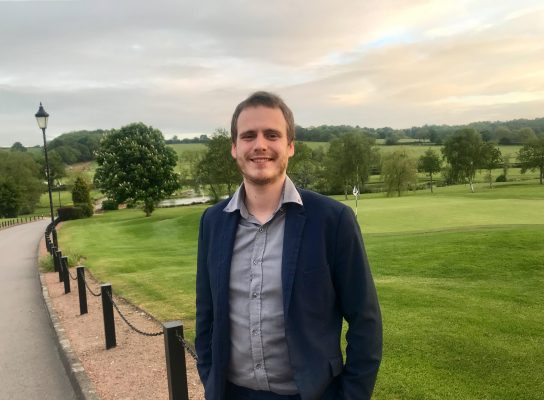
Craig Thomson
IIRPS VU Alumnus, Community Engagement Officer for "Disability Direct"
Craig, you have a Bachelor’s degree in Youth and Children work, how did you decide to continue your studies in the field of political science?
I have always wanted to study a topic which I find fulfilling and am passionate about. Youth and Children’s work was something I found very rewarding and because of this, I spent many years volunteering, working and developing my skills in the field. Through both practicing and studying Youth and Children’s work I came to understand that politics plays a crucial part. It is politics which sets legislation and the direction of the practice, and it is politics which dictates the policies and procedures which need to be followed.
This knowledge helped me to develop a deeper understanding of how society is shaped. I became frustrated that political opportunities and funding were not readily available to young disadvantaged people in the UK. An example of this is how public funding for the youth services has dried up resulting in the lack of public service, however, the need for the provision is still there.
Why did you choose Eastern European and Russian Studies programme at Vilnius University?
Having had a Lithuanian girlfriend, I visited Lithuania over 15 times. I found myself intrigued by the culture and the history of the country. So much so, that I began to explore the region and study about it. As my personal study developed, I became especially interested in how the media frames Russia and found an opportunity to develop this idea at Vilnius University.
You are quite active on social media, in February you started a new project which is called “Everyday Politics”. Can you tell us more about it? What is the main goal of this initiative?
“Everyday Politics” is an online political show designed to facilitate civil conversations about difficult topics. I wanted to make politics relevant and appropriate for those who would otherwise not be interested. So far, the response I have received has been positive. Under the name of “Everyday Politics”, I hosted a public debate on Brexit. The panel included the leader of the Labour Party for the City of Derby, local councilors and party representatives. The event was attended by 80 people and the content was recorded and shared on social media. I am currently working on a website and will be updating it regularly with original and unique content.
As we know, you had also participated in local elections as a candidate. What did this experience give you? Why would you consider local activism important?
Prior to studying at Vilnius University, I took part in local elections. This experience meant that I was able to engage with my local community, it enabled me to develop a knowledge of how political decisions affect developments in my community. It was rewarding as I felt like I was able to give back to the community which nurtured me.
Local activism is of huge value. By being involved in local politics you are making a difference where you are, you are helping to make decisions that have a direct impact on the community in which you live and this has a direct impact on your friends, family, and neighbours.
What is your plan for the future? Having graduated recently, do you have any advice for those graduating this semester?
After graduating I was offered a job as a Community Engagement Officer at Disability Direct, an NGO in Derby (UK). I manage two projects, for the first project, I am responsible for raising awareness of Hate Crime and supporting victims. For the second project, I am responsible for working with businesses to tackle all forms of disability discrimination from within their organisations. I am unsure what the future has to offer, but I am currently considering future studies as well as working for a member of Parliament. My recommendation for those graduating this semester is keep calm and write your thesis.







